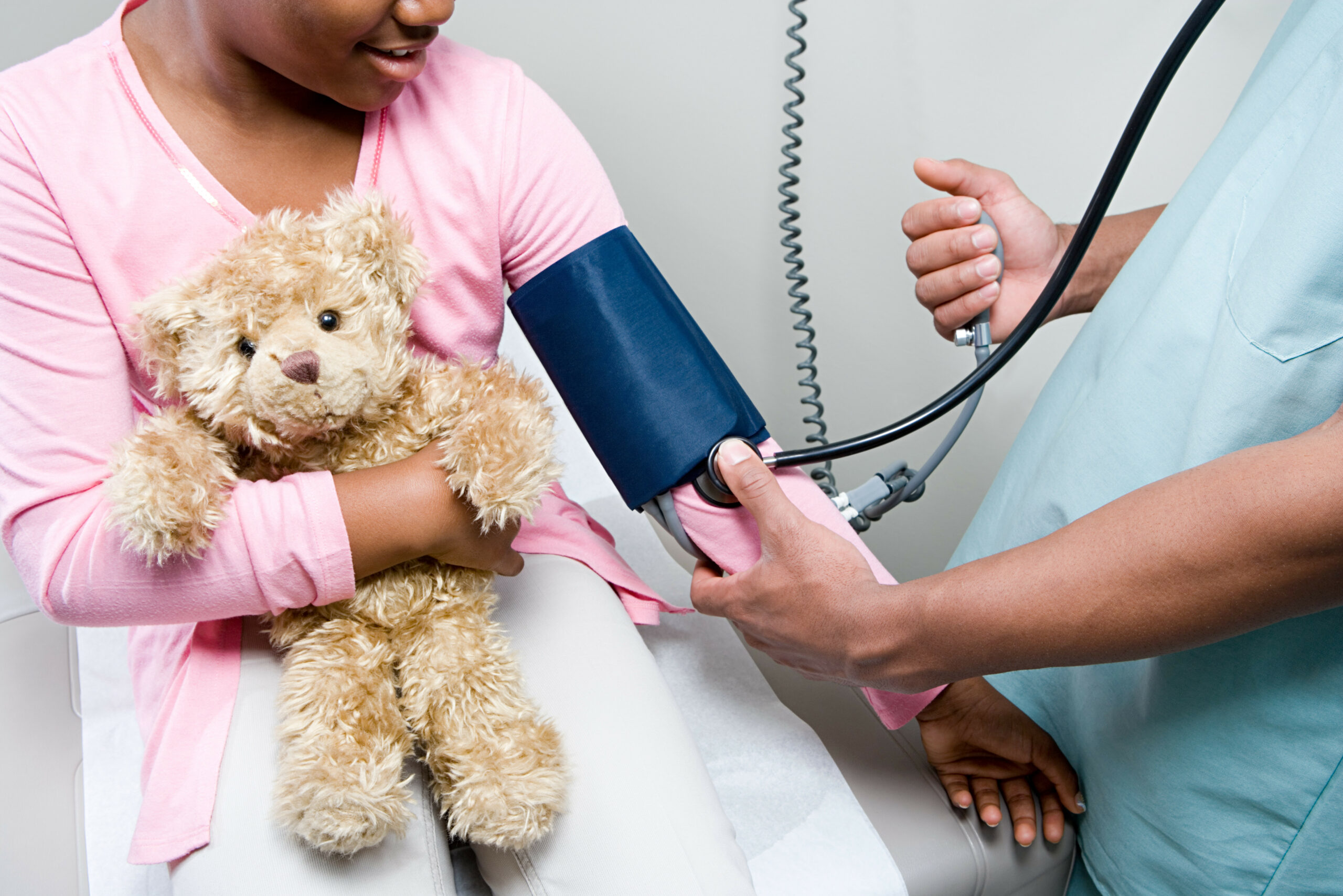High Blood Pressure in Children: Not Just an Adult Problem

Blood pressure is the measurement of the force inside a person’s blood vessels as blood pushes through. High blood pressure means that the force is higher than normal levels for a person’s gender, size and weight and can lead to long-term organ damage, including damage to the heart, kidneys, and eyes.
Typically, we think of high blood pressure as a problem for adults, but children and teens also experience it. In fact, pediatric hypertension in kids has been on the rise for the past 30 years with about 3.5% of them exhibiting it. For kids who are overweight or obese, the percentage with high blood pressure can be up to 25% of the population. High blood pressure is more common in boys and in kids older than 12.
Because children with high blood pressure often don’t feel bad or different when it’s treated, they may not understand the long-term consequences. Children’s Healthcare of Atlanta Cardiology pediatric cardiologist Wesley Lindsey, MD, describes high blood pressure to his patients as a hammer that hits your organs too hard every time your heart beats. Over time, organs hit too hard are likely to break or malfunction. By then, doctors may only be able to mitigate the damage, not fix it entirely. Prevention is best.
“I want them to know why I care so much about these two little numbers,” Dr. Lindsey said. “Blood pressure has real life consequences and can determine how many birthdays we get.”
Starting at age 3, children should have their blood pressure checked regularly by their healthcare providers. The normal range changes as children grow, but in adolescents a high blood pressure reading is the same as for adults: anything greater than or equal to 130/80. The younger a child is, the more likely that hypertension is the result of an identifiable medical condition like a congenital heart defect (CHD) or premature birth. For older kids, high blood pressure can occur for the same reasons adults develop it including excess weight, a sedentary lifestyle and poor nutrition habits.
Lifestyle changes, such as eating a heart-healthy diet low in salt and exercising more, can help reduce high blood pressure in children. For some children, medications may be necessary or even surgical interventions to correct CHDs that contribute to hypertension.
Check out the article 8 Ways Nutrition Can Help Prevent Heart Disease to learn more about how Children’s Healthcare of Atlanta Cardiology’s nutritionist Laura Hamilton MA, RD, CSP, LD teaches our preventive cardiology patients about eating a heart-healthy diet.
Early detection and treatment of pediatric hypertension can prevent the progression of heart disease, and in some cases, reverse changes that have already happened.
Screening and Diagnosis
Starting at age 3, have your child’s blood pressure checked by your healthcare provider. An elevated pressure reading may require further evaluation by a blood pressure specialist.
What can I expect at my child’s visit?
- Blood pressure taken
- Blood drawn
- Medical history taken, risk factors, family history and medications discussed
- Physical exam to rule out secondary causes of high blood pressure
- Blood pressure monitoring at home to determine if your child has high blood pressure all the time or just in the doctor’s office
What happens if we get a diagnosis of hypertension?
With a diagnosis of hypertension, a blood pressure specialist may decide to do the following:
- Recommend an echocardiogram to help determine if it has affected the heart muscle
- Start medications to lower blood pressure
- Discuss heart-healthy lifestyle modifications such as reducing sodium intake and increasing exercise

Dr. Wesley Lindsey completed a dual residency in both adult and pediatric medicine, followed by a fellowship in pediatric cardiology, which gives him a unique perspective on cardiac issues in children like hypertension, high blood pressure and high cholesterol. He works in the Fetal Cardiology Program providing fetal diagnoses of CHD and counseling for expectant parents to prepare for complex births. He has also served on the American Academy of Pediatrics Committee on Nutrition.
For more information about Children’s Healthcare of Atlanta Cardiology and our pediatric cardiology specialists, click here.
